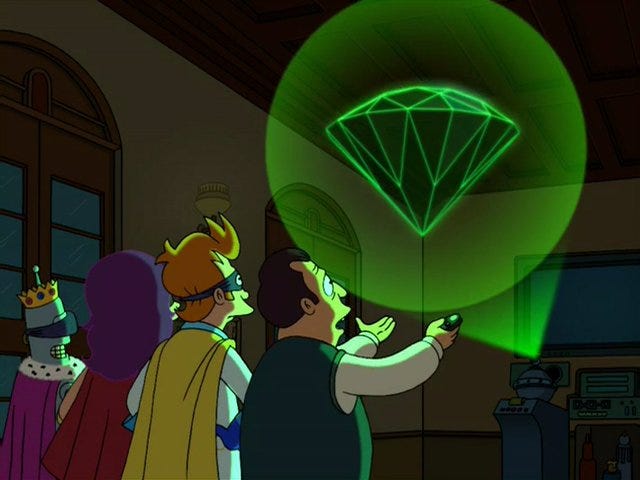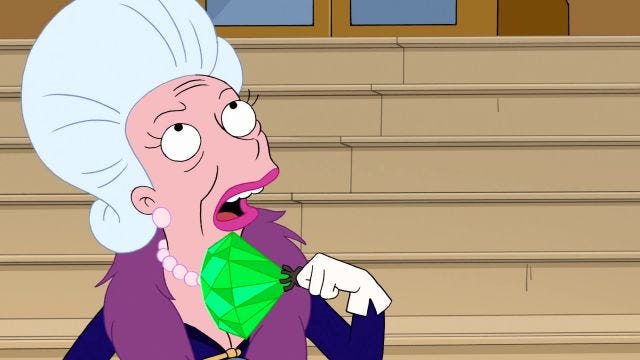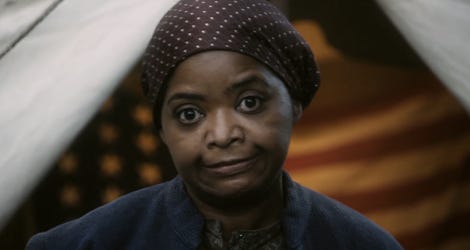So What, Who Cares (vol 3, issue 6) How the diamond industry has discovered women as customers
Hello!
We had our first mother-daughter adventure in door-to-door Girl Scout cookie sales this past weekend, and the success rate was 25%. To console the kiddo, she and I have been looking at people who kept hearing "no" until they got to their goals, and the story of May Edward Chinn, MD, is definitely on the list of resilient, determined achievers.

Dr. Chinn was the first black woman to graduate from Bellevue Medical College in 1926, having switched from music to medicine professor at Columbia told her black people lacked the necessary ability to play classical music. Upon graduation from medical school, her research fellowship at the Rockefeller Institute was revoked once people at the institution learned she was black; Dr. Chinn became the first black intern at the Harlem Hospital -- and the first woman to ride with the Harlem Hospital ambulance crew -- but no hospital would grant her practicing privileges. It was not until 1940, fourteen years after she graduated from medical school, that Dr. Chinn was granted privileges at Harlem Hospital.
In the meantime, Chinn built a private practice out of her home, which she maintained until she was 81.
Her life is remarkable, in part because she achieved so much despite hearing "no" so often. May we all treat "no" as a temporary symptom and not a chronic condition.
*

Yet more marketers are wondering why the generation saddled with $30K+ in student loans is not buying their stuff. This time, it's jewelry makers. Retail sales growth began slowing to a newsworthy degree about a year ago. Last summer, the working theory among some diamond merchandisers was that Leonardo DiCaprio's Blood Diamond had biased a generation of bauble buyers. Although DeBeers insists, "Nah, the youngs love the diamonds," the overall diamond industry has been low-key panicking over jewelry sales. They launched an ad campaign in fall 2016 aimed at showing that "diamonds are the truest expression of commitment between two people." As AdWeek reported:
The tagline's meaning is twofold: Just as "real" relationships are more authentic and desirable, the DPA wants to position true gemstones—instead of low-priced imitations like sapphires or cubic zirconia—as the same and have them represent the "real" relationship.
In other words, suck it, ethical consumers! There's a sparkly standard for sincerity of sentiment. Who cares if lab-grown diamonds are now as clear as mined ones and cost 40% less!

The diamond campaign launched last fall was aimed at redefining the meaning of diamond away from "engagement ring" -- because millennials are not so much for marriage, comparatively speaking -- and more toward "hey, whatever makes you feel good." And now Tiffany's is in on the act with a campaign aimed explicitly at getting women to buy their own dang diamonds.
So what? Millennials are the largest generational cohort since the Baby Boomers, and boy howdy, everyone sells stuff is all, "How are we going to make money? Volume." Since women in that cohort are putting off marriage and child-rearing until they're older -- and therefore have more discretionary income (in theory) -- the jewelry makers are aiming at young women. So are other luxury retailers who are now working gemstones into their clothing, shoes and bags. It remains to be seen whether millennial women will go for this or if they're migrating toward "Experience is luxury" and "This one-of-a-kind thing? I got it on Etsy"-type exclusivity.

Who cares? Jewelry buyers? The lab-grown stuff is getting good, lagging demand is depressing prices, and if you want to make like Catherine the Great and bedazzle a baseball cap with 4936 diamonds, the difficulty level for achieving that dream has gone down. Honestly, I'm just here for all the business stories that ponder the seemingly unanswerable question, "An entire generation came of age during the most challenging economic conditions since the Great Depression, and they have bananas amounts of debt in their 20s and 30s. Why aren't they keeping our economy afloat with wanton spending?"
*
Your pop culture recommendation of the day: Some genius at the AV Club managed to sell their editors on the idea of a series wherein they get paid to fall in a Wikipedia wormhole. I am so jealous I did not think of that first! ANYWAY, last week's entry was on the Cherry Sisters, a vaudeville act that was so bad, it actually helped establish a legal precedent for the media's right to print criticism. The whole article is a sprightly read, especially if you imagine Jenny Slate reading it to you. And why would you do that? Because she narrated a segment about the Cherry Sisters for Drunk History, and was reliably hilarious doing so. Here's a clip.

Slate's also done the invention of Coca-Cola (that's an excerpt) and a story about Arno Penzias and Robert Wilson discovering a sound from outer space (you can watch the whole thing).
But my very favorite segment on Drunk History remains, forever and always, "Harriet Tubman Leads An Army of Bad Bitches," narrated by Crissle West and acted by Octavia Spencer. Why haven't we seen a Tubman biopic starring Spencer yet? Why? She's already played the role on 30 Rock too!
Anyway, Drunk History is reliably hilarious, the creator and host Derek Waters is basically what Wolverine would actually look like if anyone paid any attention to how he's described in the comics, and now we all know about the Cherry Sisters.
*
All right! Footer time! If you liked this newsletter, please pass it along to your pals. They can then subscribe here! You can leave me comments and pointers via Twitter (@lschmeiser). And thank you, always, for reading.

